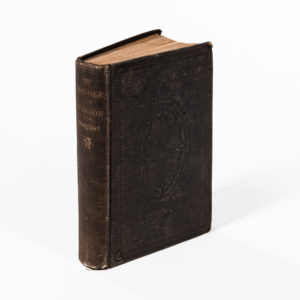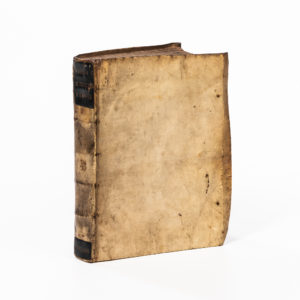
It”™s only natural: When we want to learn more about hot topics, we automatically turn to the latest sources of information to educate ourselves. A search engine like Google is our first go-to, and most often directs us to recent articles, this week”™s news stories and up-to-the-minute websites.
But not all wisdom is current. Old books, sometimes even very old and obscure books, can make important contributions to a better understanding of today”™s issues.
Mental illness and racial justice are two important topics right now that call for us to become better educated. There are many sources of information. Isn”™t this the so-called “information age”? Certainly, these sources include books published hundreds of years ago, offering insights that are relevant today. John Dorfman, director of books and manuscripts at Skinner ”” which was acquired by Bonhams in March ”” points to two outstanding examples that will be featured in an upcoming online auction, Aug. 15 through 23.
The first is a volume published in 1583, which includes several works by Johannes Wier advocating humane treatment of the mentally ill. Throughout history and in every culture, people have sought explanations for disturbed thinking and disturbing behavior. Even today, some still believe that these symptoms are the result of possession by demons and caused by witchcraft.
One of the earliest tests to identify mental illness and not demonic possession as the root of such problems dates from the mid-16th century. In that spirit, Johannes Wier, a Dutch physician, authored several treatises, arguing that people accused of witchcraft were actually mentally ill and should be treated rather than punished.

Another “old” book that sheds more light on one of today”™s most controversial issues is Frederick Douglass”™ “My Bondage and My Freedom” (1855). A self-educated social reformer, speaker and writer, Douglass escaped slavery in 1838. His gifted oratory and best-selling works soon made him a prominent leader of the abolitionist movement.
Douglass”™ books and articles, with their eloquent accounts of his experiences as a slave and later as a political activist and statesman, were widely read here and abroad. They were not only powerful arguments for the abolition of slavery; they also underscored the importance of education and literacy towards achieving that goal. As Douglass himself wrote, “knowledge is the pathway from slavery to freedom.”
Despite such treasures, print has struggled in the digital age, when even vintage works can be accessed online. Still, there”™s a unique appeal in the look and feel of a book. It may be the allure of a fine binding or the patina of long use.
Or even the sense of holding history in your hands.
Bonham Skinner”™s department of books and paper, including documents, letters, maps and natural history prints, is a leading resource for both buyers and sellers. If you want to enrich your personal library, or you have items to consider for consignment, contact books@bonhamsskinner.com. And for more, contact Katie at katie.whittle@bonhamsskinner.com or 212-787-1114.

















